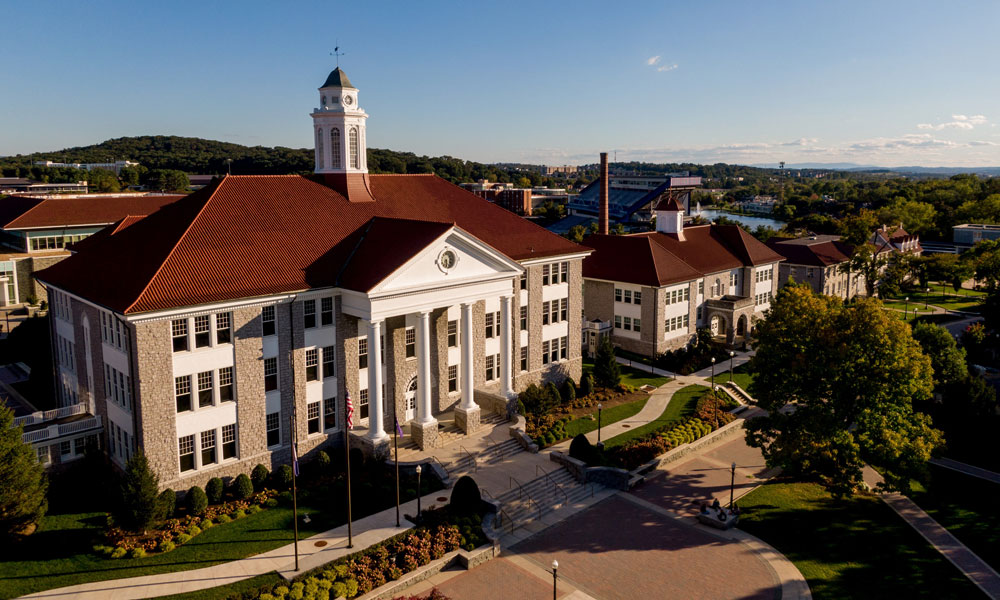Students interested in helping communities engage in productive conversations embark on interdisciplinary, collaborative Honors Project
Office of the Provost
Three students, Courtney Herb (SCOM), Lauren Holder (SCOM and MATH) and Alison Steed (Political Science) are exploring ways to research, design, facilitate and assess public conversations about issues that are both complex and value-laden. Their interest stems from their work in the Honors program Civic Engagement track and their experiences in Professor Lori Britt’s course that teaches students how to create and facilitate public processes.
The students are working under the direction of Britt and Political Science Professor, Rob Alexander, who both engage in scholarly and applied scholarship about deliberative democracy, an area of study reflective of recent work on behalf of local governments and civil society organizations to re-engage citizens in public issues. Deliberative democracy is based upon political theories suggesting that healthy democracies rely upon that citizen involvement in public problem solving. Deliberative democracy in practice seeks to create spaces for citizens to learn about community issues, practice ethical reasoning, hone democratic attitudes, and contribute to improved community problem solving.
Britt, Alexander, and the honors students are all part of an initiative started last year called 4C: Campus Community Civic Collaborative. The initiative seeks to train undergraduate and graduate students in design and facilitation skills so that they may become leaders in civic engagement. Between on-campus classes and additional training opportunities, Britt and Alexander teach students the hands-on skills to help groups, organizations, and communities have productive conversations that are grounded in theories of public dialogue and public deliberation. These theories are interdisciplinary and influenced by theories of interpersonal and group communication, democratic process, and conflict negotiation. Students learn how to ask questions that help public dialogue participants explore the values associated with public issues and to move from taking positions about issues to identifying their interests. In this way, space becomes created for finding common ground and for arriving at sustainable, community-based solutions to public problems.
Herb, Holder and Steed serve as 4C Associates and have already facilitated 4C-sponsored conversations about guns, security and public life, values and public choices, and shared visions for public places that bring people together and reflect our community’s diversity.
This innovative approach to implementing an Honor’s project reflects strong CAL student initiative as well as Britt and Alexander’s broader research and teaching collaborations that include an examination of the relationship between a community’s deliberative culture and its related ability to engage in public dialogue, the evolution of transdisciplinary working groups focused on place-based planning processes (with Engineering professor Elise Barrella), and an expansion of 4C training workshops to include graduate students in the MPA and SCOM graduate programs. By building bridges across disciplines, between academic units, and from gown to town, Britt, Alexander, and their students intend to produce new ways of engaging with our disciplines, our communities, and with one another.
